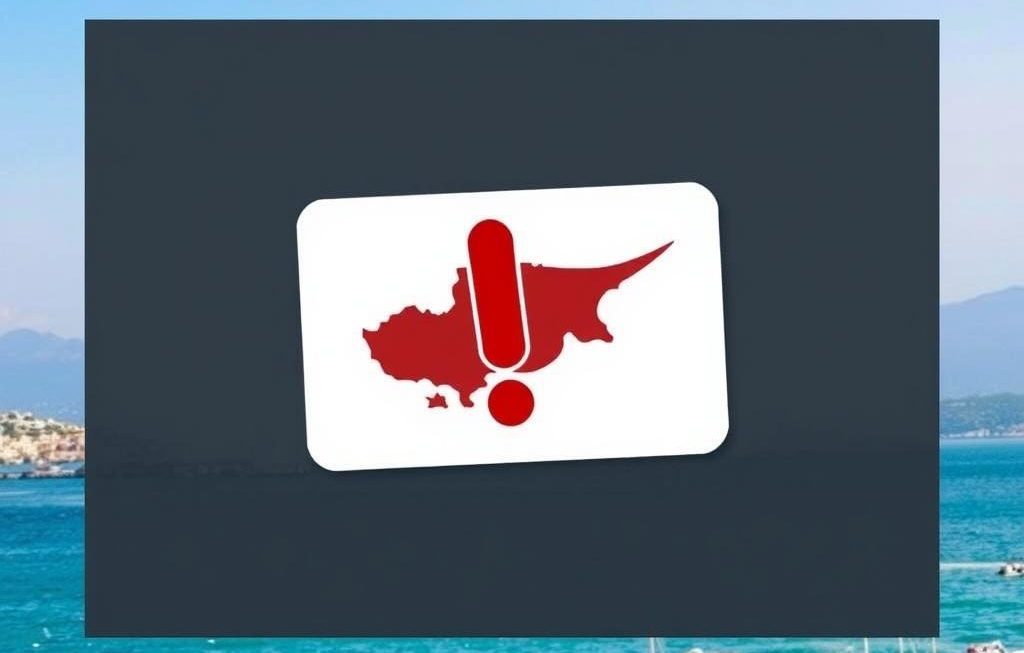Brexit brought significant changes to how UK citizens approach moving to and residing in European Union countries, including Cyprus. No longer enjoying the automatic freedom of movement once granted by EU membership, British nationals need to navigate new procedures when considering Cyprus residency. For those curious about Cyprus residency, understanding the updated visa and residence options post Brexit is essential.
Understanding the Impact of Brexit on Cyprus Immigration
Before the UK left the EU, British citizens could live and work in Cyprus without additional permits due to freedom of movement within the EU. Since Brexit’s completion, these rights have been curtailed. Now, UK citizens must follow the same immigration rules that apply to third-country nationals when wanting to live, work, or study in Cyprus.
This shift means that anyone thinking about moving to Cyprus after Brexit must plan ahead. Simple visits for tourism remain unchanged for short durations under the Schengen framework, but residency, employment, and long-term stays have stricter requirements.
Post-Brexit, UK nationals are treated like any non-EU applicants seeking to reside in Cyprus.
Cyprus Residence Options for Brits: Navigating New Requirements
For British citizens aiming to establish Cyprus residency, the options available fit into several broad categories. These depend largely on the purpose of stay—whether for retirement, work, investment, or family reunification. Knowing which permit fits your situation can streamline the application.
Temporary and Permanent Residency
The Republic of Cyprus offers both temporary and permanent residence permits. Temporary residence typically covers periods of up to one year with the possibility of renewal, while permanent residence requires meeting specific criteria such as continuous residence and financial stability.
- Temporary residence permit (Category F): For individuals financially independent and not intending to work in Cyprus.
- Permanent residence permit (Category F): Granted to long-term residents who can prove stable income and ties to Cyprus.
For UK citizens, these permits now require applications to be submitted with proof of income, accommodation, and health insurance.
Employment and Work Permits
Securing a work permit is mandatory for Brits seeking to work in Cyprus. The process involves obtaining a job offer first, with the employer often assisting with the permit application. The Cypriot Labour Department assesses applications, considering local employment needs.
| Permit Type | Purpose | Duration | Renewable |
|---|---|---|---|
| Category F (Temporary Residency) | Financially Independent Stay | Up to 1 year | Yes |
| Employment Permit | Work in Cyprus | Up to 2 years | Yes |
| Permanent Residency Permit | Long-Term Stay | Indefinite | Not applicable |
Work permits require employer sponsorship and are subject to labour market tests in Cyprus.
Investor and Business Visas: Thriving Through Cyprus Immigration Post Brexit
The Cyprus government actively promotes investment programs geared toward attracting foreign nationals, including UK citizens. Investment immigration has become a practical channel for those seeking both residence and economic opportunity.
One popular route is the Cyprus Investment Programme, which, although currently paused for new applications, historically allowed investors to obtain permanent residency via qualifying investments. Alternatives focusing on real estate purchases or business establishment still exist, enabling British nationals to secure residence through economic contributions.
Real Estate-Based Residency
Purchasing property above a certain threshold offers a straightforward way to obtain a residency permit. The minimum investment amount varies but tends to be attractive for retirees and those planning relocation without work intentions.
Business Incorporation
Starting a business in Cyprus enables UK citizens to apply for residency linked to economic participation. The, business must comply with local laws, demonstrate viability and often provide employment, enhancing the applicant’s immigration case.
Investment routes offer a practical residency avenue for UK citizens willing to contribute to Cyprus’ economy.
Visiting Cyprus After Brexit: Tourist Visa Rules and Short-Term Stay
Tourism remains an accessible option for UK citizens after Brexit. Visitors can stay visa-free in Cyprus for up to 90 days within a 180-day period, aligning with the Schengen Area’s short-stay rules. While Cyprus is not a full Schengen member, it coordinates visa policies closely with the EU.
For stays longer than 90 days, applying for a visa or residence permit becomes necessary. This means that a leisure visit that extends into work or study requires more formal immigration channels than before Brexit.
Family Reunification and Residency Rights
UK citizens with Cypriot family members or permanent residents can apply for family reunification residence permits. These are designed to allow close relatives to live together legally in Cyprus.
Proof of relationship, accommodation, and financial support are typically required. This route is valuable for couples, parents, or dependent children who wish to reunite under Cyprus immigration post Brexit procedures.
Practical Considerations for Moving to Cyprus After Brexit
When planning a move, UK citizens should consider factors such as healthcare access, tax implications, and property laws. The introduction of the Cyprus-UK Cooperation Agreement offers bilateral provisions, but navigating local bureaucracy still demands preparation.
Health insurance is a mandatory requirement for most residence permit applications now, reflecting a broader emphasis on ensuring healthcare coverage for non-EU nationals. UK expats must secure private medical insurance or qualify for the local system.
Understanding Cyprus’ healthcare and tax systems is vital for a smooth transition post-Brexit.
Common Pitfalls and How to Avoid Them
Many British nationals have underestimated the paperwork and waiting times involved in post-Brexit Cyprus immigration. Common issues include incomplete applications, lack of proof of stable income, and misunderstanding the residency permit categories.
Engaging an experienced local immigration adviser can help prevent delays and rejections. Additionally, keeping up to date with changes in Cyprus immigration rules is critical, as policies may evolve in response to ongoing Brexit adjustments.
A Closer Look at Cyprus Visa Processing Times and Documentation
The processing time for residence permits can vary from a few weeks to several months, depending on the application type and completeness. Applicants should prepare documents such as valid passports, financial statements, accommodation proof, and health insurance certificates.
In many cases, translations and notarisations are required, demanding attention to legal details often overlooked by applicants. Prior planning speeds up the procedure and avoids unnecessary frustrations.
Thorough preparation of documents is the best strategy to smooth out Cyprus visa application processes.
Living in Cyprus: What to Expect After Gaining Residency
Once residency is granted, UK citizens can enjoy the Mediterranean lifestyle, friendly communities, and favourable tax regimes. However, adaptation to local customs and regulations remains essential. Obtaining a residence card allows more straightforward interactions in everyday life, such as opening bank accounts and enrolling children in schools.
Residency also opens pathways toward eventual permanent residence and citizenship under Cyprus law, but these require fulfilling continuous residence criteria and demonstrating integration into local society.
Your Next Chapter: Navigating Residency and Visa Options with Confidence
Transitioning from EU freedom of movement to new immigration regulations has changed how UK citizens approach Cyprus residency. Adapting, researching, and utilizing available visa channels reduce uncertainty.
Whether your goal is retirement by the sea, starting a business, or joining family, Cyprus presents multiple paths influenced by economic, social, and legal factors. The key lies in understanding these routes and selecting the one that aligns with your circumstances.
Cyprus remains a welcoming destination for UK nationals willing to navigate its updated immigration framework thoughtfully.
By focusing on the correct visa category, preparing comprehensive documentation, and seeking professional advice when needed, moving to Cyprus after Brexit can be a smooth and rewarding experience.
Frequently Asked Questions
- Do UK citizens need a visa to enter Cyprus after Brexit?
No, UK citizens do not need a visa for short stays up to 90 days within a 180-day period, but they must obtain a visa or residence permit for longer stays or work purposes. - What are the main ways for UK citizens to get Cyprus residency?
The main options include temporary or permanent residence permits based on financial independence, work permits through employment, and investment-based routes like property purchase or business establishment. - Can UK citizens work in Cyprus without a work permit?
No, post-Brexit UK citizens require an employment permit to work legally in Cyprus. - Is health insurance mandatory for Cyprus residency applications?
Yes, valid health insurance, either private or locally provided, is a standard requirement for most residence permits. - How long does it take to process a Cyprus residence permit?
Processing typically ranges from several weeks to a few months, depending on application type and documentation completeness. - Are there any special provisions for family reunification for UK nationals?
Yes, close family members can apply for reunification permits, provided they meet proof requirements of relationship, accommodation, and financial support. - Does owning property in Cyprus guarantee residency for UK citizens?
Owning property can be a basis for a residence permit if the investment meets the minimum thresholds and accompanying conditions such as financial stability are fulfilled.



